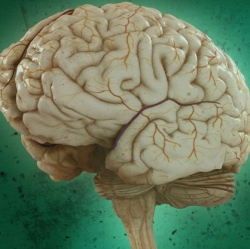
In a discovery that raises fundamental questions about human behavior, researchers at the University of Virginia School of Medicine have found that the immune system directly affects, and even controls, our social behavior, such as our desire to interact with others.
That finding could have significant implications for neurological diseases such as autism-spectrum disorders and schizophrenia, the researchers suggest.
“The brain and the adaptive immune system were thought to be isolated from each other, and any immune activity in the brain was perceived as sign of a pathology. And now, not only are we showing that they are closely interacting, but some of our behavior traits might have evolved because of our immune response to pathogens,” explained Jonathan Kipnis, chair of UVA’s Department of Neuroscience.
“It’s crazy, but maybe we are just multicellular battlefields for two ancient forces: pathogens and the immune system. Part of our personality may actually be dictated by the immune system.”
KurzweilAI has cited supporting evidence for that idea. For example, permanent stress may affect immune cells in the brain, leading to mental disorders and protective immune microglia cells also have direct involvement in creating the cellular networks at the core of brain behavior.
Last year, Kipnis, the director of UVA’s Center for Brain Immunology and Glia, and his team discovered that meningeal membranes (covering the brain and spinal cord) in the brain directly link the brain with the lymphatic system. That overturned decades of textbook teaching that the brain lacks a direct connection to the immune system.
Now, the researchers suggest, the relationship between people and pathogens could have directly affected the development of our social behavior. Social behavior (which is necessary for the survival of the species) allows pathogens to spread, so our immune systems may have developed to protect us from the diseases that accompany those interactions.
Specifically, the UVA researchers have now shown that a specific immune molecule, interferon gamma, seems to be critical for social behavior, and that a variety of creatures, such as flies, zebrafish, mice and rats, activate interferon gamma responses (as protection) when they are social.
Normally, this molecule is produced by the immune system in response to bacteria, viruses or parasites. But blocking the molecule in mice using genetic modification also made regions of the brain hyperactive, causing the mice to become less social. Restoring the molecule restored the brain connectivity and behavior to normal.
